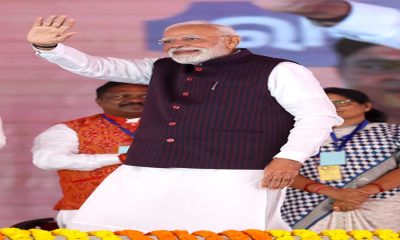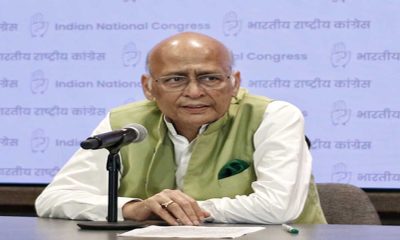International News
2022 was ‘a defining moment’ for Turkish diplomacy
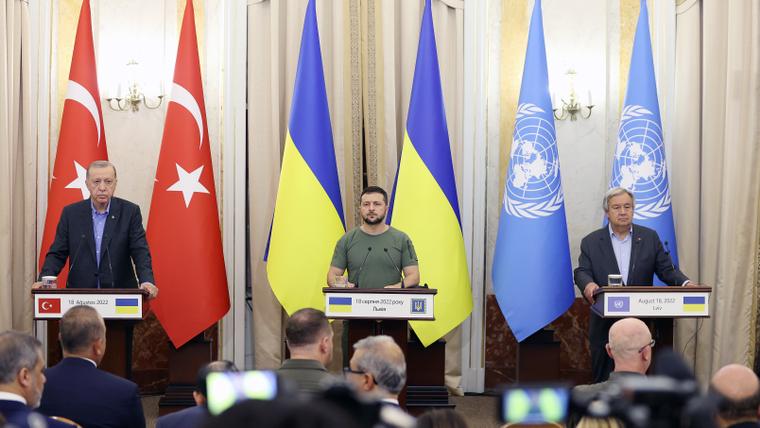
Türkiye has been a top mediating force between Ukraine and Russia, while developing different reconciliation paths with countries from Israel to Egypt.
2022 will be remembered as the year when Russia attacked Ukraine, starting a difficult war with no end in sight and escalating tensions between the West and Moscow.
The year has also seen some crucial peace initiatives emanating from Türkiye, a NATO member, which has a working relationship with Russia on different conflicts like Syria, aiming to find a common ground between Kiev and Moscow.
Turkish peace efforts were fruitful with some significant results, like the landmark grain deal and exchange of prisoners of war between Russia and Ukraine. Ankara has also launched other crucial peace initiatives normalising its ties with Israel and Egypt, two important Middle Eastern states, with which its relations had deteriorated in the 2010s.
Gregory Simons, an associate professor at the Institute for Russian and Eurasian Studies at Uppsala University, believes 2022 was “a defining moment” for Türkiye, which “managed to negotiate achievements that no other country can.”
According to Simons, “the example of Ukraine as a geopolitical shatter belt between US and Russia has seen Türkiye take a role as an honest broker in the conflict,” which reaffirmed the country’s wisdom in establishing and developing an independent balancing and mediating role in the current era of risk and uncertainty.
Unlike many other Western states, Ankara’s hard work and persistence along political and economic tracks yielded progress like the grain shipment agreement “in a highly divisive and emotionally driven geo-economic and geopolitical conflict,” showcasing Ankara’s growing position as a subject and not an object of events, Simons tells TRT World.
In 2022, Türkiye emerged as “the world’s most important peace actor that left its mark on the year,” says Mesut Hakki Casin, a professor of international law at Yeditepe University, referring to Turkish efforts to address the Ukraine conflict.
“While Turkey successfully demonstrated its neutrality policy in the Ukraine war, just as it did in the Second World War, it played the role of mediator in the conflict as stipulated in the 33th article of the UN,” Casin tells TRT World. During WWII, Ankara stayed neutral between Nazi Germany-led Axis countries and the Allied forces, avoiding any casualties.
Ukraine policy:
Despite much pressure from the US and Europe, Türkiye has refused to be part of Western sanctions on Russia, believing that talking with Moscow is better than isolating it. But at the same time, Türkiye has urged Russia to withdraw from all occupied Ukrainian territories, fiercely defending Kiev’s territorial integrity.
The Ukraine war has shown that “Türkiye in the 21st century pursues a fundamentally different foreign and security path than that played during the Cold War,” says Simons. In this path, Ankara acts as a bridge between the Western-centric and non-Western-centric worlds, he says.
Unlike the past, when Ankara followed a passive foreign policy, under President Recep Tayyip Erdogan Türkiye has demonstrated the country’s political and military potential in the international arena from Ukraine to Central Asia.
“Turkish President Recep Tayyip Erdogan is the only leader capable of talking with both Vladimir Putin and Volodymyr Zelenskyy, working to develop a rapprochement between the two sides,” says Casin.
Beyond Turkish mediation efforts, Ankara has also taken a crucial step to close its straits to both Russian and NATO warships in alignment with the Montreux Convention, which regulates the status of Turkish channels. “With this crucial measure, Türkiye has prevented the spread of the Ukraine war to other areas particularly in the Black Sea,” says Casin.
This measure also crucially led to setting demarcations in the conflict between Russia and the West, limiting tensions between the two sides, according to the Turkish professor.
Yasar Sari, an expert at Haydar Aliyev Eurasian Research Center of Ibn Haldun University, also believes that Türkiye’s diplomatic efforts “have kept the Ukraine conflict limited,” preventing the war from turning into a regional conflict.
Besides the Ukraine conflict, Türkiye has displayed its mediation skills in another difficult conflict between Armenia and Azerbaijan on the Karabakh dispute, urging both Erivan and Baku to find common ground to address their differences.
In October, Erdogan played a critical role to realise an icebreaker peace talks between Azerbaijani and Armenian leaders in Prague on the sidelines of an EU meeting.
Middle East normalisations:
During 2022, Türkiye also worked hard to de-escalate tensions across the Middle East, reestablishing its ties with Egypt and Israel and strengthening its connections with Saudi Arabia and the UAE.
Since a 2010 Israeli raid on Mavi Marmara, a Turkish aid ship travelling toward Gaza, which had long faced blockade by Tel Aviv, Turkish-Israeli ties experienced a deteriorating trend. In 2013, Turkish-Egyptian diplomatic ties were cut off after a coup led by general-turned-President Abdul Fattah al Sisi overthrew the country’s first democratically-elected government.
“Turkiye’s diplomatic initiatives have been very successful in opening a new page with all of the regional powers in the region. This is part of a broader trend in the region of trying to maintain diplomatic channels open among the major players,” says Gallia Lindenstrauss, a senior research fellow at the Institute for National Security Studies (INSS), an Israeli think-tank.
“The normalisation process with Israel has been noteworthy for the fact that contrary to the 2016 normalisation effort, this time around there were many more high-level visits, indicating that there is a more solid ground for the current normalisation,” Lindenstrauss tells TRT World.
In March, Israeli President Isaac Herzog met with Erdogan in a groundbreaking visit to Türkiye. In September, another high-level meeting between Israeli Prime Minister Yair Lapid and Erdogan was held at the sidelines of the UN General Assembly. Erdogan also indicated that he wanted to visit Israel after the November elections.
This high-level meeting approach to solidify ties between Türkiye and other states has also been obvious in Ankara’s normalisation process with Egypt. Last month, Erdogan met Sisi in Qatar saying that “there should be no resentment in politics,” referring to past tensions between the two states following the Arab Spring rebellions.
It’s an approach that could go further in the turbulent Middle East. “In the next period, just as it (Türkiye) has entered a (normalisation) path with Egypt, it can also enter another (normalisation) path with Syria,” the Turkish president said. Ankara-Damascus ties have been cut off in the wake of the Syrian civil war, seeing millions of refugees flowing to Türkiye.
During 2022, Erdogan also met UAE leader Sheikh Mohammed bin Zayed Al Nahyan in Abu Dhabi and Mohammed Bin Salman in Ankara, showing his commitment to strengthening formerly strained ties with the two Gulf countries.
According to Lindenstrauss, Ankara’s normalisation with Israel indicates the depths of ongoing Turkish diplomatic efforts in the Middle East.
Business
World Bank flags rising poverty levels in Pakistan
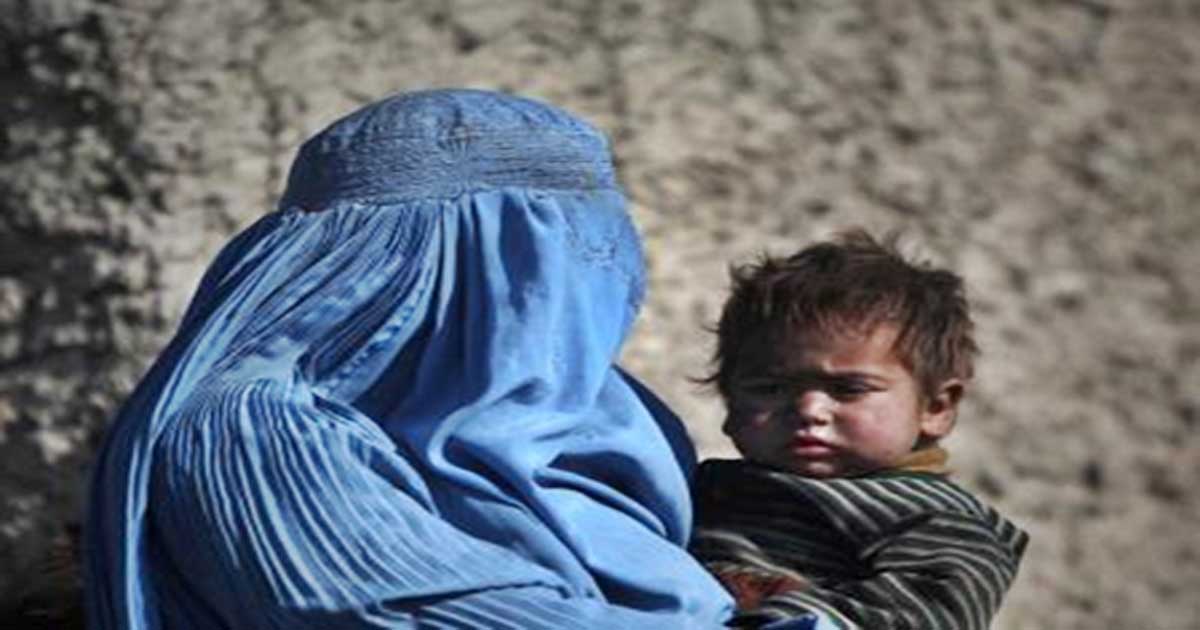
New Delhi, Oct 8: The World Bank has expressed serious concern over Pakistan’s economy as the country has failed to reduce poverty despite massive loans injected by the IMF.
The current model of growth has failed to ameliorate the conditions of the poor, and the headcount ratio (HCR) has surged to its highest level of 25.3 per cent in the last eight years, which is a 7 per cent increase in HCR since 2023, the World Bank report states.
Instead of concentrating on rural development to reduce poverty, the Pakistan government has been focused more on increasing defence expenditure.
The World Bank report titled “Reclaiming Momentum Towards Prosperity: Pakistan’s Poverty, Equity and Resilience Assessment” released on September 23, mentions that even the country’s aspiring middle class (constituting 42.7 per cent of its population) is “struggling to achieve full economic security”.
Pakistan’s once-promising poverty reduction trajectory has come to a troubling halt, reversing years of hard-fought gains.
After dramatically reducing poverty from 64.3 per cent in 2001 to 21.9 per cent in 2018 — declining by 3 percentage points annually until 2015 before slowing to less than 1 percentage point per year — recent compounding shocks have pushed poverty rates back up to a projected 25.3 per cent by 2023-24, the report states.
The economic model that delivered early wins has reached its limits, with 14 per cent of the population in 2018 remaining vulnerable to falling back into poverty when faced with shocks.
Compounding crises — Covid-19, economic instability, devastating floods, and record-high inflation—have further exposed systemic weaknesses, leaving many in low-productivity activities and unable to cope with these challenges, the report points out.
Bold policy reforms are now essential to address structural imbalances, prevent sliding back into poverty during shocks, and tackle the persistent challenges in remote areas. In this context, this Poverty, Equity, and Resilience Assessment , the first since the early 2000s, looks at how poverty has evolved in Pakistan by combining traditional and non-traditional data, offering detailed analysis and strategic direction on the country’s efforts and challenges to reduce poverty and promote equity.
This comprehensive assessment aims to provide a roadmap for policymakers and stakeholders to address poverty and equity challenges in Pakistan effectively, the report added.
International News
Rahul Gandhi begins 4-nation South American visit
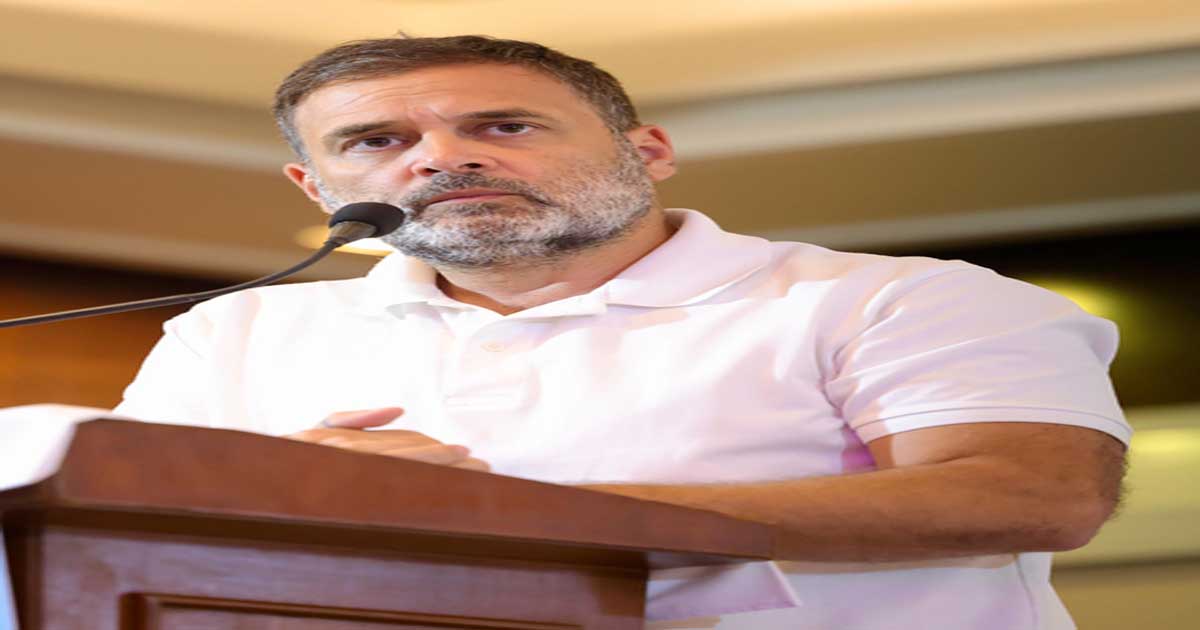
New Delhi, Sep 27: Leader of Opposition (LoP) in the Lok Sabha, Rahul Gandhi, has embarked on a South American tour, during which he is scheduled to interact with political leaders, university students, and members of the business community across four nations.
The Congress media and publicity department, incharge, Pawan Khera, announced the development on Saturday but refrained from disclosing the names of the countries LoP Gandhi will be visiting.
In a post on X, Khera wrote, “Leader of the Opposition in Lok Sabha, Shri Rahul Gandhi, has embarked on a visit to South America. He is scheduled to engage with political leaders, university students, and members of the business community across four countries.”
According to the party, this marks LoP Gandhi’s first overseas visit in September and will deepen democratic, trade, and strategic ties, building on historical India–South America cooperation and Global South solidarity.
During his visit to Brazil and Colombia, LoP Gandhi is expected to interact with university students, hold meetings with presidents and senior leaders across multiple countries, strengthening democratic and strategic ties, the party said.
He is also expected to engage with business leaders to explore opportunities as India seeks to diversify trade and partnerships in the wake of US tariffs, it also said.
Earlier this month, he travelled to Malaysia, although the Congress had not issued an official statement regarding that trip. The visit sparked several questions and also drew criticism from the Bharatiya Janata Party (BJP).
The BJP took a dig at his foreign trips and BJP IT cell chief Amit Malviya shared a photograph of Gandhi, claiming that he was vacationing in Malaysia.
Taking to X, Malviya posted, “Rahul Gandhi has slipped away yet again — this time on a clandestine vacation in Langkawi, Malaysia. Looks like the heat and dust of Bihar’s politics was too much for the Congress ‘Yuvraj’, who had to rush off for a break. Or is it another one of those secret meetings that no one is supposed to know about?”
International News
Pakistan a US ally, at White House convenience

New Delhi, Sep 26: Pakistan has historically been considered an ally of the United States – during and after the Cold War – with Islamabad ready to execute at White House bidding, either for a prize or a dressing down.
Geographically, Pakistan occupies a strategic position and diplomatically shares ties with China on the one hand, and the Arab countries on the other. With most governments in Islamabad being financially and morally bankrupt and powerless against their military, the rulers have been ductile and malleable to be coerced into most deals.
Knowing that proximity to China, India, and Afghanistan makes it a key player in South Asian geopolitics, the US is also aware that with growing ties with Saudi Arabia, including the recent mutual defence pact, it can be a reason for its neighbours and partners being wary.
Washington continues to view Pakistan as a strategic partner in regional security, particularly in counterterrorism efforts. Its role in conducting covert operations from Pakistani soil against the then Soviet occupiers in Afghanistan is no secret anymore. All these, and more, which US President Donald Trump considers to be of use to his idea of ‘Make America Great Again’, draw interest to the country. Thus, a new trade agreement was signed, including a 19 per cent tariff on Pakistani imports and US involvement in developing Pakistan’s oil reserves.
Islamabad is looking at further US investments, especially in its mineral sector, which could provide a much-needed economic boost, provide jobs and infrastructure development for the beleaguered nation. Pakistan is thus trying to ignite US interest in the challenging geopolitical areas where even its military has been unable to put down the rebellion.
The US State Department has designated “The Balochistan Liberation Army (BLA) and its alias, The Majeed Brigade, as a Foreign Terrorist Organisation (FTO), and added the Majeed Brigade as an alias to BLA’s previous Specially Designated Global Terrorist (SDGT) designation” in a statement on August 11.
The restive westernmost province of Balochistan holds a wide reserve of gold, silver, copper, iron, chromite, and lithium across 1,600 mines. The northern regions of Gilgit-Baltistan and Khyber Pakhtunkhwa are said to be sitting on lithium reserves, while the Thar coalfield in Sindh, with 175 billion tons of lignite, further underscores the overall mineral reserve potential.
The US is interested in Pakistan’s rare earth minerals, crypto mining potential, and broader investment opportunities. But revolt by tribes in these areas and without a clear governance policy, the reserves remain mostly untapped. Islamabad anticipates taming the fierce uprising with US help. Thus, apart from interests in geopolitical developments, Pakistan General Asim Munir’s frequent invitations to the White House remain a matter of speculation.
Munir, who had previously been hosted for lunch by Trump a few weeks earlier, accompanied Shehbaz Sharif on the Pakistan Prime Minister’s first official visit to the White House on Friday. While the General’s presence reflected Rawalpindi’s influence over the political masters in Islamabad, there is an assumption that a solution for mining in troubled areas may have also been put on the table.
Meanwhile, reports from Washington hinted at President Trump making his guests wait about 30 minutes before hosting them for talks. That made sure that even a high-level delegation from Pakistan realised that they can not assume themselves too important.
-

 Crime3 years ago
Crime3 years agoClass 10 student jumps to death in Jaipur
-

 Maharashtra1 year ago
Maharashtra1 year agoMumbai Local Train Update: Central Railway’s New Timetable Comes Into Effect; Check Full List Of Revised Timings & Stations
-

 Maharashtra12 months ago
Maharashtra12 months agoMumbai To Go Toll-Free Tonight! Maharashtra Govt Announces Complete Toll Waiver For Light Motor Vehicles At All 5 Entry Points Of City
-

 Maharashtra1 year ago
Maharashtra1 year agoFalse photo of Imtiaz Jaleel’s rally, exposing the fooling conspiracy
-

 National News12 months ago
National News12 months agoMinistry of Railways rolls out Special Drive 4.0 with focus on digitisation, cleanliness, inclusiveness and grievance redressal
-

 Maharashtra11 months ago
Maharashtra11 months agoMaharashtra Elections 2024: Mumbai Metro & BEST Services Extended Till Midnight On Voting Day
-

 National News1 year ago
National News1 year agoJ&K: 4 Jawans Killed, 28 Injured After Bus Carrying BSF Personnel For Poll Duty Falls Into Gorge In Budgam; Terrifying Visuals Surface
-

 Crime12 months ago
Crime12 months agoBaba Siddique Murder: Mumbai Police Unable To Get Lawrence Bishnoi Custody Due To Home Ministry Order, Says Report







